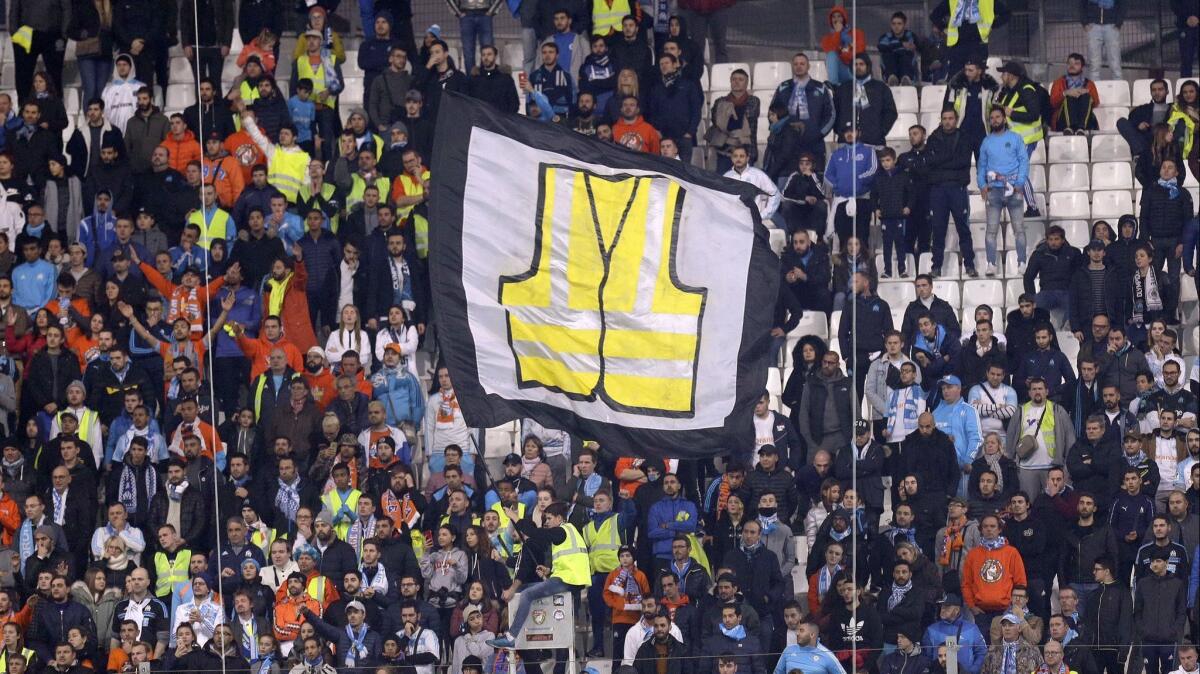France delays fuel tax but that may not slow national protests

Reporting from Toulouse, France — The French government announced Tuesday that it would delay a controversial gas and utilities tax increase after massive protests plunged the country into chaos and left President Emmanuel Macron facing his biggest political crisis since his election 18 months ago.
Making a televised statement, Prime Minister Edouard Philippe insisted that the government understood the anger that has gripped portions of the country and planned to launch a nationwide discussion over the next four months to find ways to address both global climate change and the more fundamental economic issues that have divided the nation.
“No tax is worth putting the unity of the country in danger,” Philippe said. “We hope these measures will restore calm in the country.”
The new tax was slated to go into effect in January as part of Macron’s effort to fight global warming. But the looming tax angered working-class and rural residents who believed they would bear much of the financial burden, prompting the Gilets Jaunes, or Yellow Vests, protests.
In Paris, more than 130 people were injured and 412 arrested afer protests turned violent over the weekend. Shops were looted and cars torched in plush neighborhoods around the famed Champs-Elysees. The Arc de Triomphe was sprayed with graffiti and vandalized.
The decision to delay the gas tax marks a stunning U-turn for Macron. Since taking office, the president has insisted that past French presidents failed because they backed off crucial reforms in the face of criticism. He vowed never to make such a mistake, and even through the violent weekend, his administration insisted it would not yield to the Yellow Vest movement.
But the mounting pressure, and the prospect of bigger and increasingly violent demonstrations ahead, caused the administration to relent.
Philippe said that, starting Dec. 15, the administration would convene a national discussion that would include government at all levels and citizens to study and design a plan that addresses economic uncertainty in France. He insisted the government had already taken some steps in that direction, such as eliminating a housing tax. But, he said, the government was now willing to take a broader view, such as finding ways to invest in new public mobility programs to help rural residents who have to drive long distances to work or run daily errands.
“This will be a consultation like no other,” he said “We want to design a process that will allow all French to express themselves. Now is the time for dialogue.”
At the same time, Philippe issued a stern warning: “This violence must stop.”
With another round of national protests slated Saturday, he called on demonstrators to be calm and respectful, and cautioned that law enforcement would be given the necessary resources to keep order.
“Everyone has the right to protest,” he said. “It is a precious right that is fundamental to our nation. But citizens also have the right to feel secure and to move freely. We won’t accept any more attacks on police or blockages. It’s the taxes of French citizens that have to pay to repair the damage to public property. The protests Saturday have to proceed calmly, and we will make sure they remain calm.”
Whether the efforts to appease protesters go far enough remains uncertain.
Many Yellow Vest protesters had already begun calling for some sort of public referendum or constitutional change to create new avenues for them participate in decision making. Beyond the gas tax, many residents in France’s struggling rural communities feel politicians in Paris are out-of-touch elitists who are uninterested in helping them.
More pragmatically, given its organic nature, the movement has no defined leadership, and no singular set of demands. It remains unclear whether any one person or group has the ability to accept the government’s proposal or slow down the protests.
Opposition politicians have further complicated the situation by aligning themselves with the movement. In a tweet early Tuesday, far-right leader Marine Le Pen declared: “A moratorium is planned. But a moratorium is only a delay. It’s obviously not at the level of expectations regarding the precarity of life being debated by French citizens.”
Meanwhile, a sympathy strike launched on Monday by high school students expanded Tuesday as thousands of young people walked out of class across the country. In the Toulouse suburb of Blagnac in the country’s southwest, a section of Saint-Exupéry High School was set on fire during a student protest. Local officials said 2,500 students had protested at 25 schools, resulting in seven arrests, and one student being hospitalized with burn wounds.
Even the nation’s prefects, a network of local administrators, have become involved. In an anonymous letter, they called on the Macron government to do more to address the anxiety and division plaguing the country.
“What is happening is the result of years of fragmentation of French society,” the letter said, warning of “Paris arrogance.” They are cut off from France and its brave people who can not make ends meet.”
UPDATES:
10:50 a.m.: This article was updated with staff reporting.
7:16 a.m.: This article was updated with more statements from government officials and protest leaders.
This article was originally published at 4:00 a.m.
More to Read
Sign up for Essential California
The most important California stories and recommendations in your inbox every morning.
You may occasionally receive promotional content from the Los Angeles Times.











